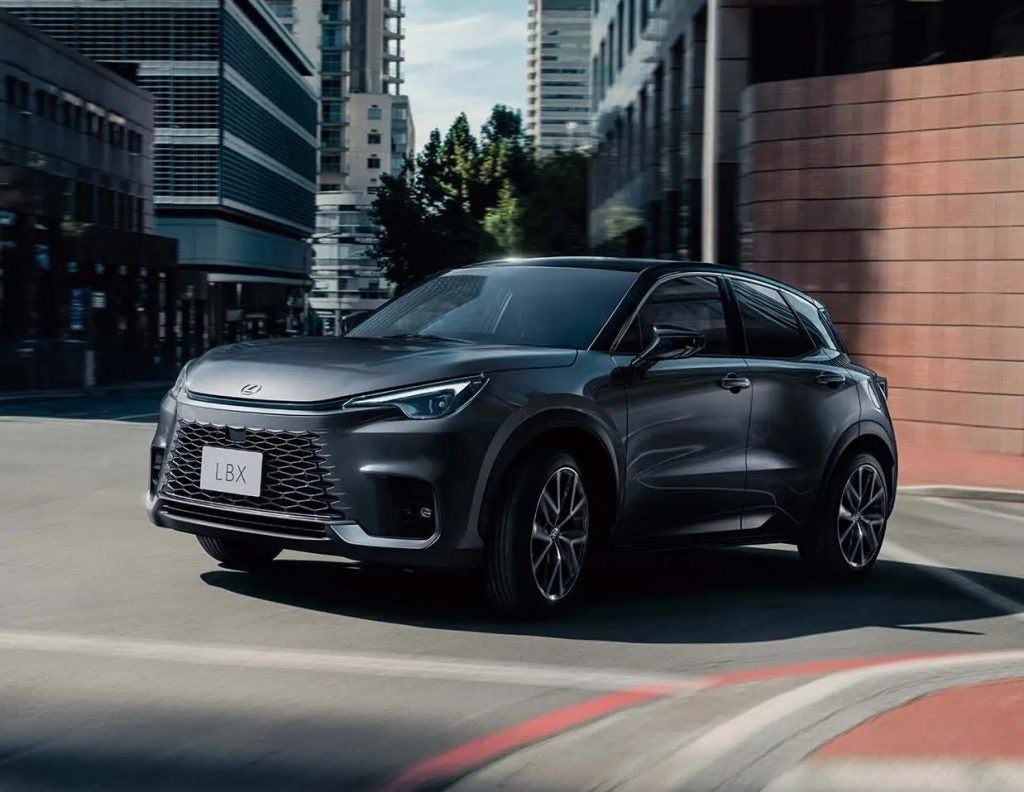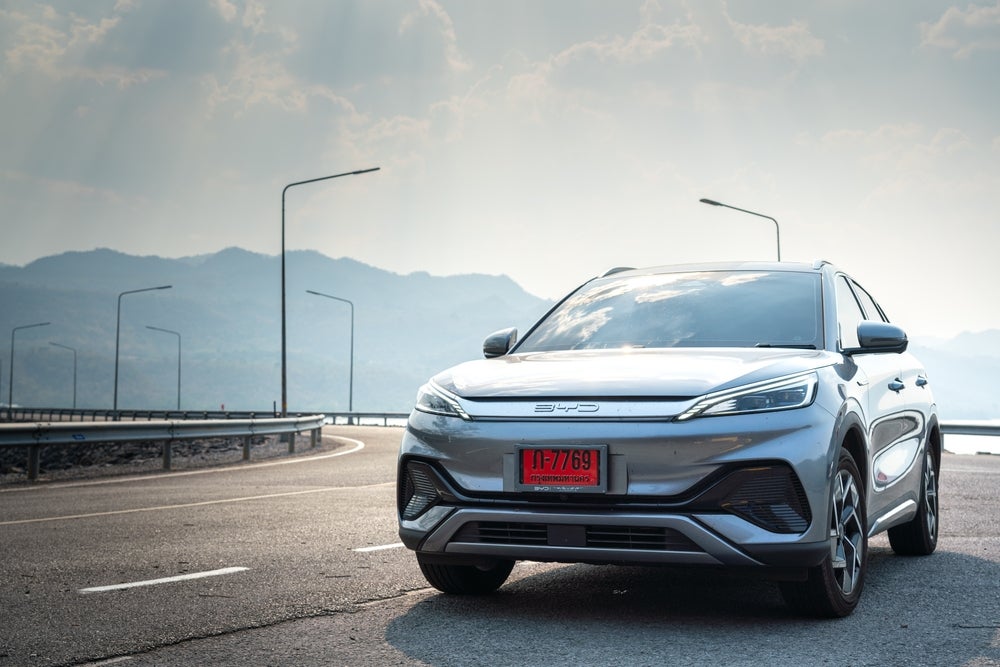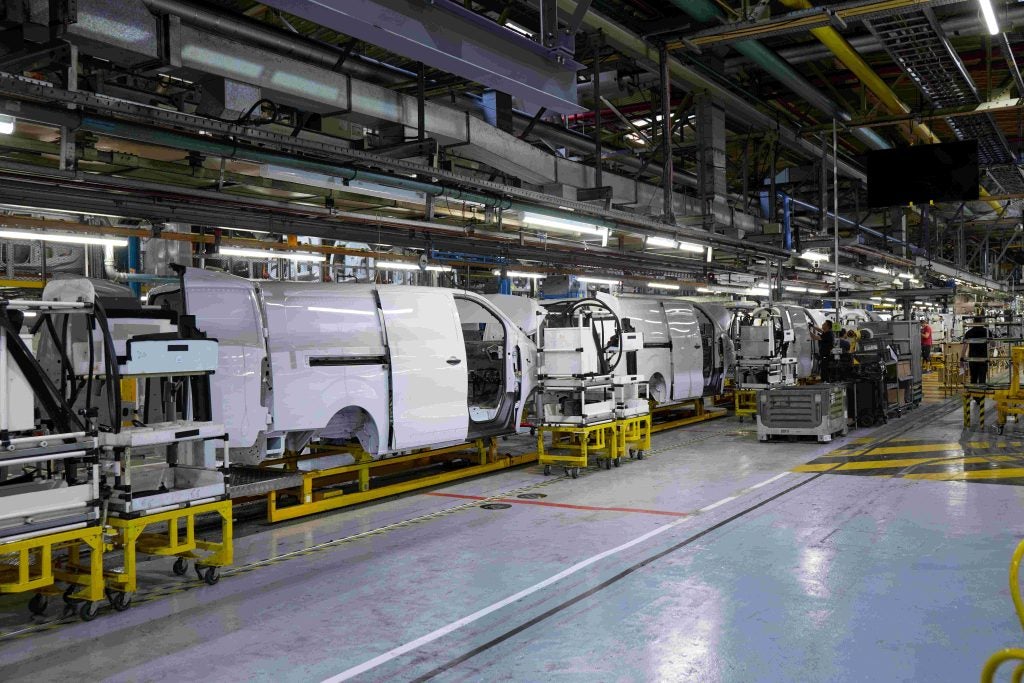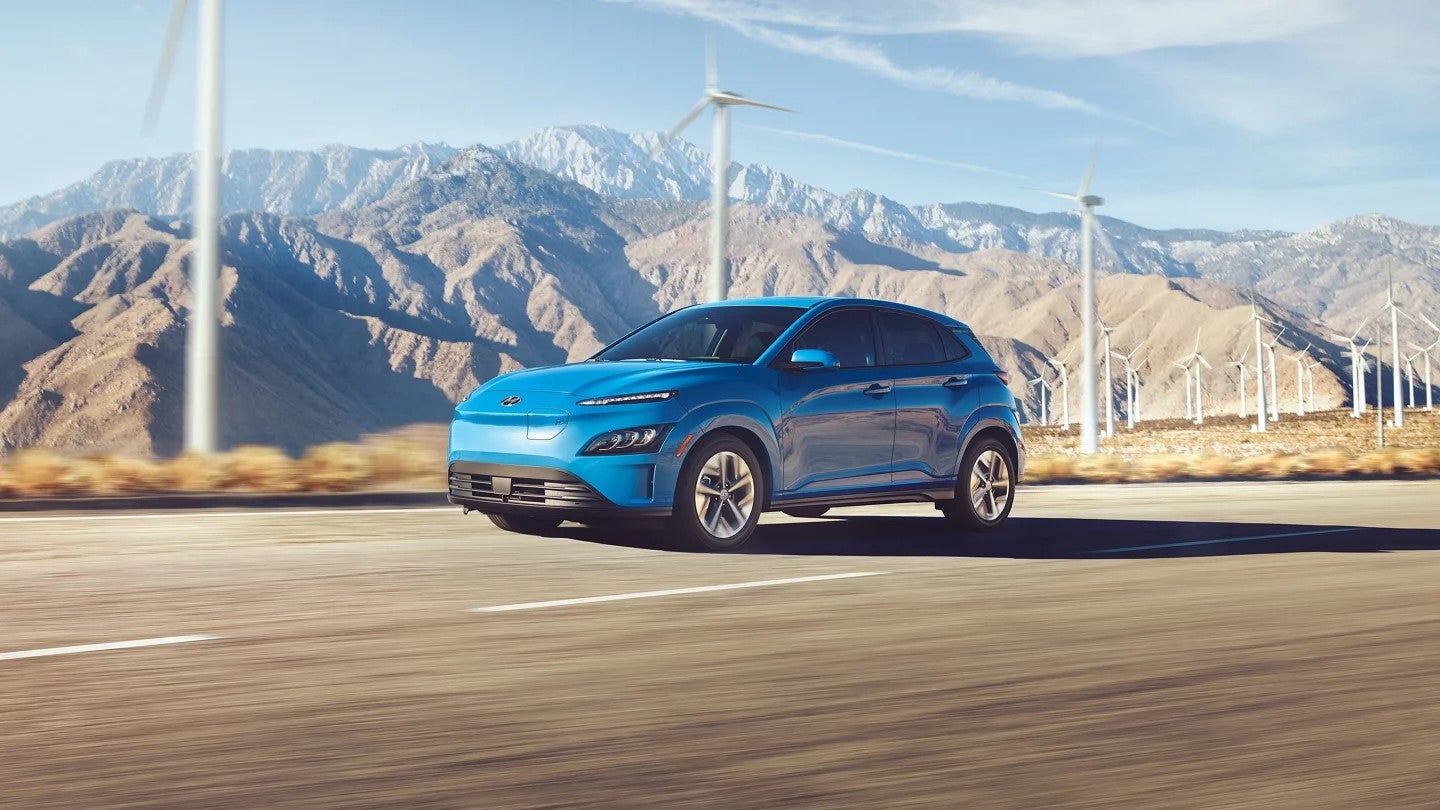
Domestic sales by South Korea’s five main automakers combined increased by almost 3% to 132,589 units in November 2023 from 129,290 a year earlier, according to preliminary wholesale data released individually by the manufacturers. The data do not include sales by South Korea’s low-volume commercial vehicle manufacturers including Tata-Daewoo and Edison Motors, while import brands are covered in a separate report.
The domestic vehicle market in November was underpinned mainly by a strong performance by Hyundai, which reported an 18% rise in local deliveries to 72,058 units thanks mainly to strong demand for newly released models including the Grandeur sedan and the Sportage SUV. GM Korea also reported sharply higher sales compared with weak year-earlier levels, while all other brands saw their domestic sales decline last month.
In the first eleven month of the year domestic sales were up by almost 7% at 1,343,342 units from 1,258,350 units, reflecting a 13% rise in Hyundai sales to 699,905 units and a 6.5% rise in Kia sales to 523,956 units. GM Korea’s domestic sales were slightly lower at 36,541 units in this period; KG Mobility reported a 2% fall to 59,838 units; while Renault Korea’s sales plunged by 53% to 23,102 units.
The Korea Automobile Manufacturers Association (KAMA) said it expects the domestic market, including imports, to fall by just under 2% to 1.71 million units in 2024 after rising by 3.3% in 2023.
Global sales among the country’s “big-five” automakers, including vehicles produced overseas by Hyundai and Kia, increased by over 4% to 684,430 units in November from 655,531 units a year earlier, while cumulative eleven-month sales were almost 9% higher at 7,365,840 from 6,769,639 units – helped by improved supplies of semiconductors following last year’s shortages. Overseas sales increased by 4.5% to 551,841 units last month from 528,241 units and were up over 9% year-to-date at 6,022,498 units from 5,511,289 units.
Hyundai Motor’s global sales rose by 5% to 365,576 units in November from 348,280 a year earlier, driven by strong domestic demand and continued overseas growth. The auto maker also revealed it sold 16,000 electric vehicles (EVs) globally in November. Total deliveries in the first eleven months of the year were up by almost 8% at 3,869,947 units from 3,597,241 in the same period of last year, as the automaker recovered from last year’s component shortages.
How well do you really know your competitors?
Access the most comprehensive Company Profiles on the market, powered by GlobalData. Save hours of research. Gain competitive edge.

Thank you!
Your download email will arrive shortly
Not ready to buy yet? Download a free sample
We are confident about the unique quality of our Company Profiles. However, we want you to make the most beneficial decision for your business, so we offer a free sample that you can download by submitting the below form
By GlobalDataDomestic sales rose by over 18% to 72,058 units last month from 62,926 a year earlier, while cumulative eleven-month sales were up by 13% at 699,905 from 618,497 units – reflecting strong demand for the all-new Grandeur sedan and the company’s strong SUV range. Earlier this year the company launched the all-new Kona compact SUV, including an all-electric variant, and the all-new Santa Fe mid-sized SUV.
Overseas sales increased by just over 2% to 293,518 units in November from 287,354, while year-to-date volumes were up by over 6% at 3,170,042 units from 2,978,744 – reflecting mainly strong demand for its SUVs in key regional markets including North America and Europe and in India.
Earlier this year Hyundai said it was targeting a 10% increase in global vehicle sales to 4.32 million units in 2023, including 3.54 million overseas sales and 781,000 in its home market. In August it also revealed plans to improve its product mix by increasing production of higher-margin models such as SUVs and EVs starting with the global roll out of upgraded the GV80 SUV, the GV80 Coupe and high-performance N-series models.
Kia’s global sales increased by 2% to 260,227 vehicles in November from 255,836 a year earlier, with higher overseas sales offsetting a decline in domestic volumes. Total sales in the first eleven months of the year were up by almost 8% at 2,872,092 units from 2,666,745 units, driven by strong demand for SUVs including the new Sportage and Sorento and the K3 sedan.
Domestic sales fell by 3.3% to 50,590 units last month from 52,333 a year-earlier, with the Sportage, Sorento and the Carnival MPV its best-selling models. Cumulative eleven-month sales increased by 6.5% to 523,956 units from 491,932 previously. Overseas sales rose by 3% to 209,637 units in November from 203,503 and by 8% to 2,348,136 year-to-date from 2,174,813, reflecting robust demand for the Sportage, Seltos and K3 models in key regional markets including North America and Europe.
Kia said it aims to increase its global sales over 10% to 3.2 million units in 2023, including 585,120 domestic sales and 2.61 million units overseas. The automaker continues to expand its EV range in global markets, with the launch of the new EV9 SUV in North America and Europe in the fourth quarter followed by the new EV5 compact electric SUV and the EV6 electric sedan next year. The new Carnival MPV and the facelifted K5/Forte are also being rolled out globally from the current quarter.
Kia’s medium-term target is to sell 4.3 million vehicles annually by 2030, of which 1.6 million units are expected to be electric vehicles (EVs).
GM Korea’s global sales more than doubled to 47,104 vehicles in November from 22,860 units a year earlier, as the automaker continued to enjoy a strong rebound following the introduction of the new Trax crossover vehicle at its Changwon plant in February. Cumulative eleven-month sales were up by 73% at 416,692 units from 241,123 a year earlier.
Local sales rose by 47% to 3,016 units last month from 2,057 a year earlier, but were just slightly higher at 36,541 units year-to-date from 35,397 – underpinned by the new Trax and Bolt EV. Other GM models sold locally include the Colorado and Sierra Denali pickup trucks and the Equinox, Traverse, Tahoe and Cadillac Lyric SUVs.
Exports surged by 112% to 44,088 units in November from 20,803 a year earlier and by 85% to 380,151 year-to-date from 205,726 units.
KG Mobility’s global sales continued to fall sharply in November, by 38% to 7,000 units from 11,222 a year earlier, reflecting sharply lower domestic and export sales. The company, previously known as Ssangyong Motor, was acquired last year by a consortium led by local steel and chemicals firm KG Group. Total sales in the first eleven months of the year were still up by almost 5% at 109,640 units from 104,566 previously.
Domestic sales plunged by over 21% to 5,050 units last month from 6,421 a year earlier and were down by over 2% at 59,838 year-to-date from 63,146 – as competition in this market continued to intensify. In September the company launched the new Torres EVX SUV powered by a lithium iron phosphate battery pack, its second battery-powered model after the launch of the Korando Emotion in early 2022.
Exports plunged by 59% to 1,950 units in November from 4,801 units, despite the company having signed a number of large export orders from Middle-Eastern distributors in the last year – including a contract to supply 170,000 CKD kits to Saudi Arabia over an eleven-year period and a further 7,000 built-up vehicles to be exported to the UAE. Cumulative year-to-date exports were still up by 20% at 49,982 units from 41,720 units, reflecting a strong rebound in the first half of the year.
KG Mobility is in the process of finalising the acquisition of bankrupt Edison Motors Company Ltd, a local electric commercial vehicle manufacturer that just two years earlier had successfully bid to acquire Ssangyong Motor from bankruptcy but failed to complete the acquisition. It emerged last month that the company is also involved in a legal struggle to retain the KG Mobility trademark after it was registered by an unrelated company earlier this year.
Renault Korea‘s global sales plunged by 74% to 4,523 vehicles in November from 17,333 units a year earlier, with local sales and exports both declining sharply. Total volumes in the first eleven months of the year were down by 39% at 97,469 units from 159,964 units.
Domestic sales fell by 66% to 1,875 units last month from 5,553 a year earlier, as the company struggled with rising competition from domestic manufacturers and from imported brands, while year-to-date sales were down by 53% at 23,102 from 49,378 units. Exports plunged by 78% to 2,648 units in November from 11,780 a year earlier and by over 30% to 77,015 year-to-date from 110,586 units.
Renault Korea plans to add more hybrid vehicles to its line-up to help revive its sales, with a version of the XM3 compact SUV the only hybrid model currently in its line-up. The company is also understood to be making preparations to produce a Geely-based mid-sized hybrid SUV model in the second half of next year under its “Aurora 1” programme
Last month Renault Korea announced it had reached an agreement with China’s Geely group to produce the Polestar 4 model at the Busan plant from the second half of 2025, for sale domestically and for export to North America. It will be the company’s first battery electric vehicle (BEV) model to be produced to the country. Management have also been discussing sourcing EV batteries from local producers including LG Energy Solution, SK On and Samsung SDI.
To help improve the domestic appeal of its vehicles, Renault Korea signed a memorandum of understanding (MOU) last month with local firm TMAP Mobility Company to co-develop infotainment systems for future models.
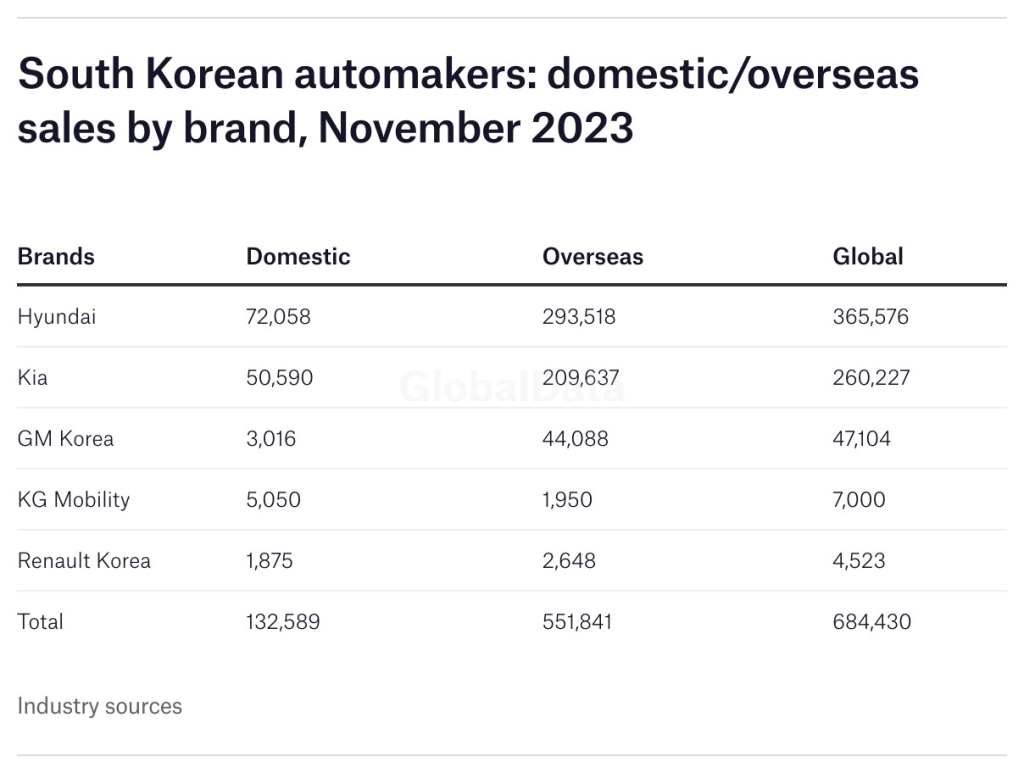
Analysts at GlobalData say that the Korean vehicle market appears to be entering a downcycle amid higher interest rates and weak consumer confidence. The main factors behind the slowdown were the end of the temporary tax cut in June 2023 and a slowing economy. BEV sales have also lost momentum, as the government’s EV subsidy that was earmarked for trucks has almost dried up. The EV subsidy for PVs has not run out yet, but consumers are resisting buying an EV, as EV prices are still high even after the subsidy. Most local dedicated BEVs are mid-sized or larger.
The Korean light vehicle market is projected by GlobalData to grow by 3.4% to 1.71m units in 2023. In 2024, a 3.7% gain to 1.77m units is currently forecast.



